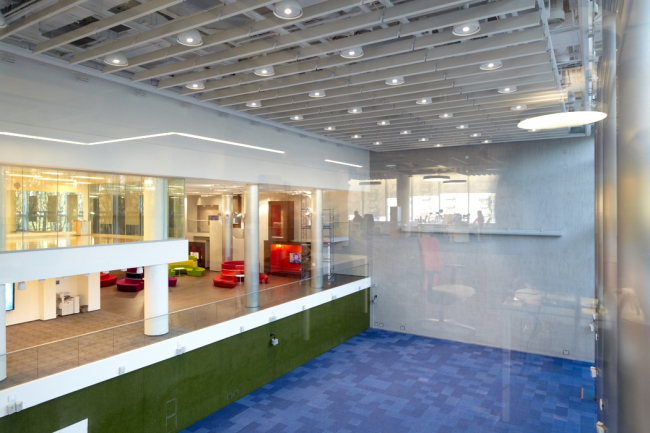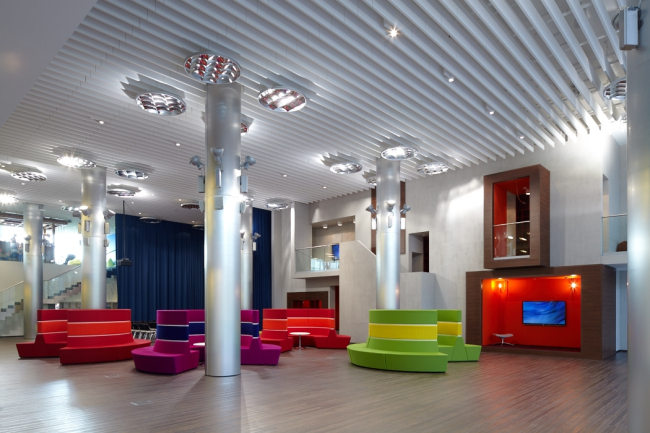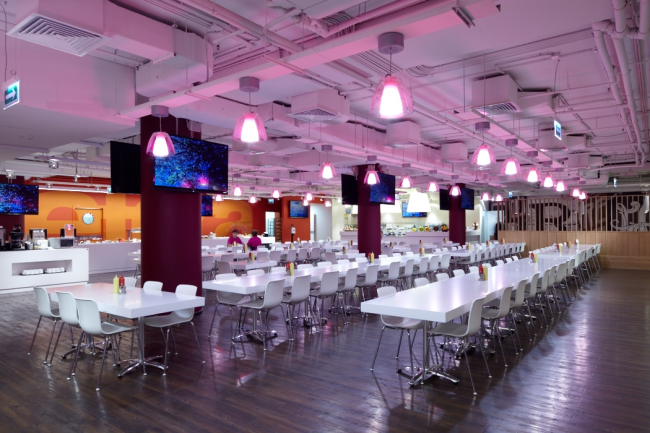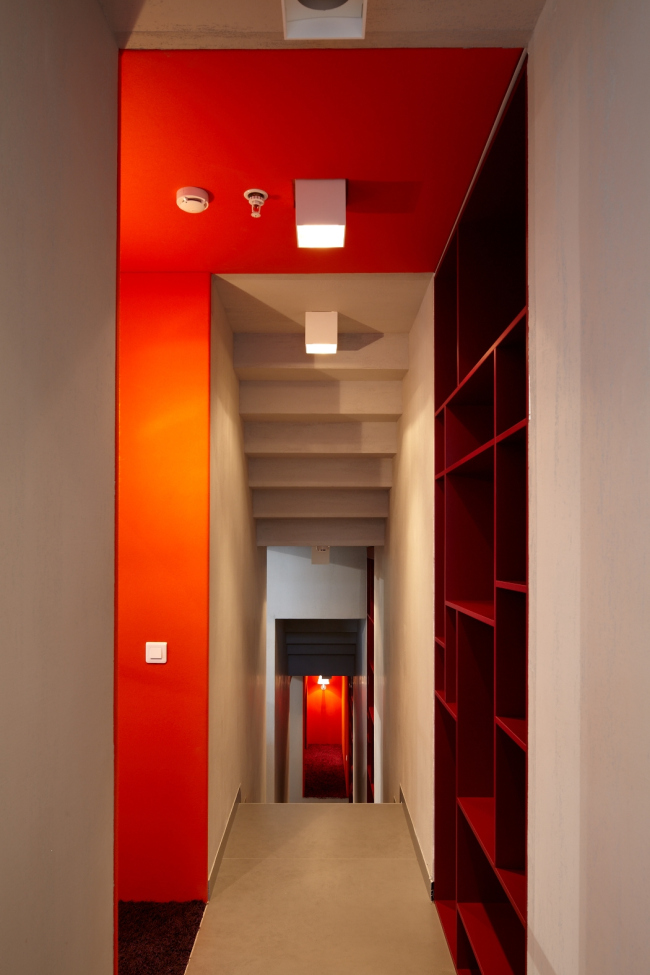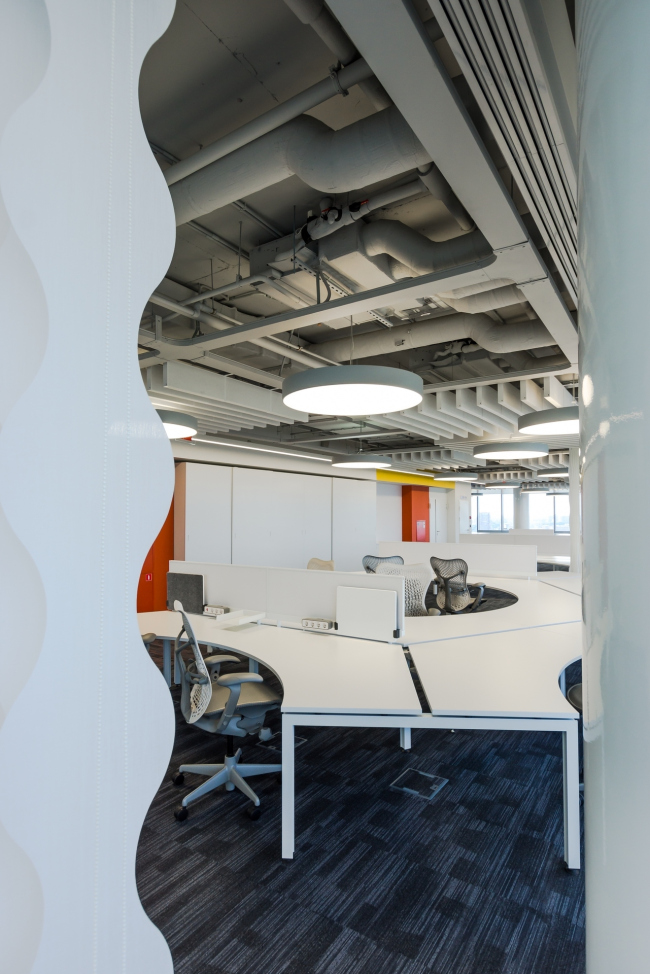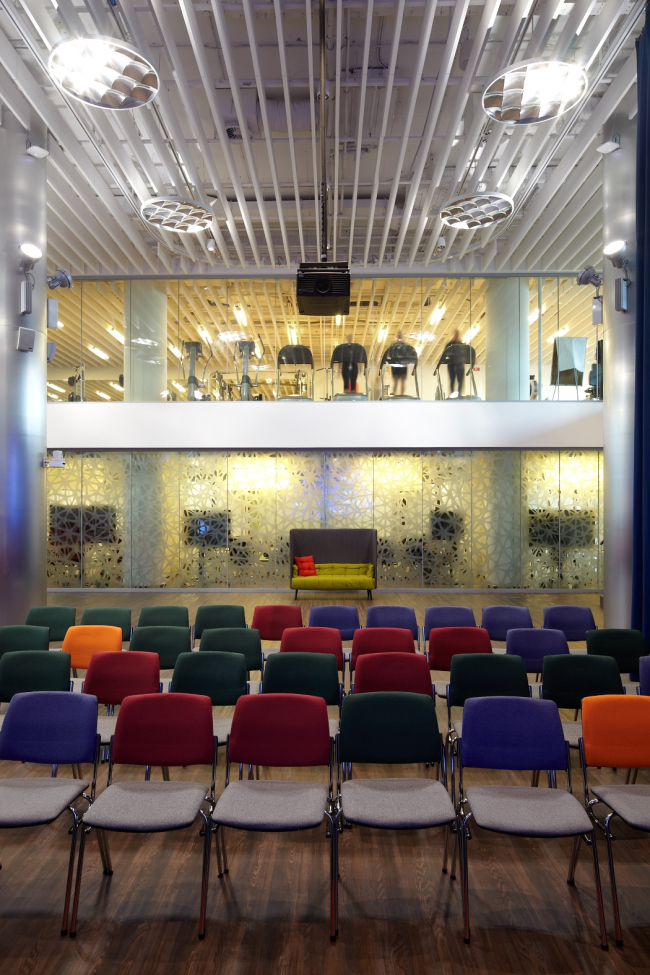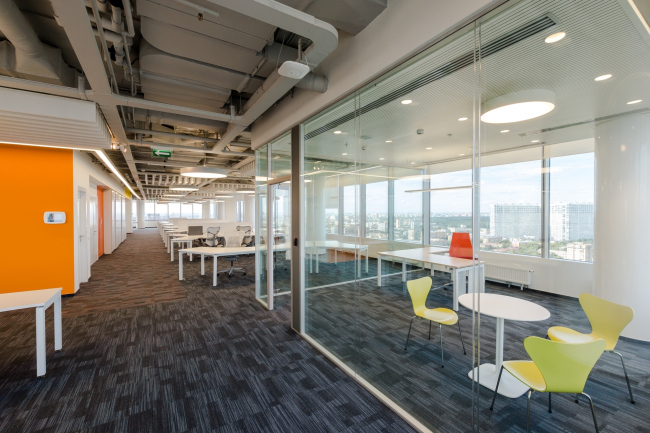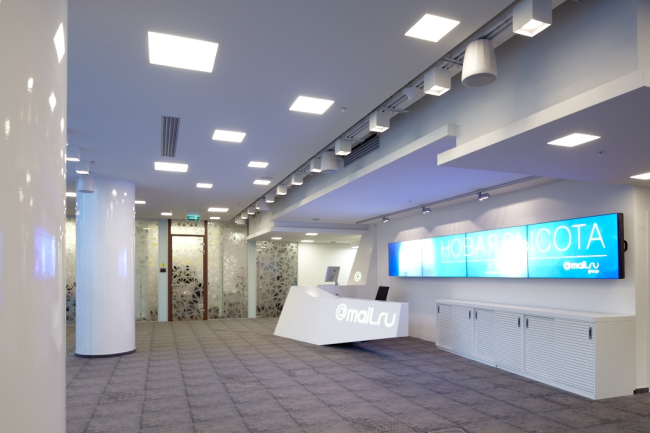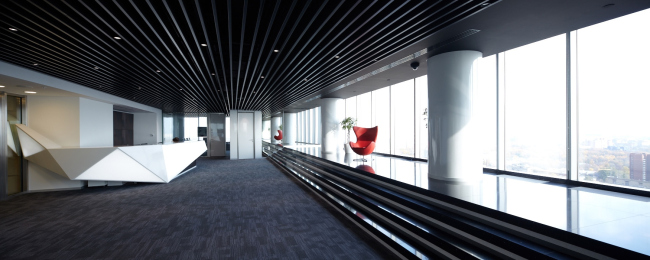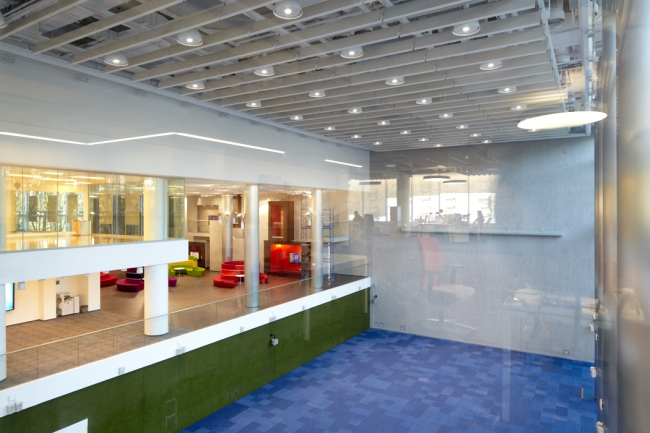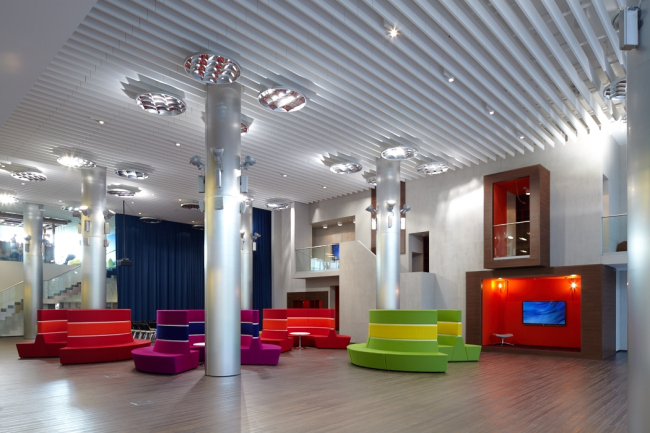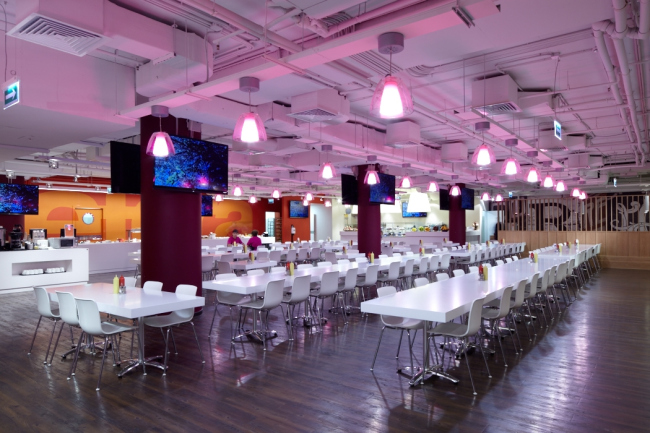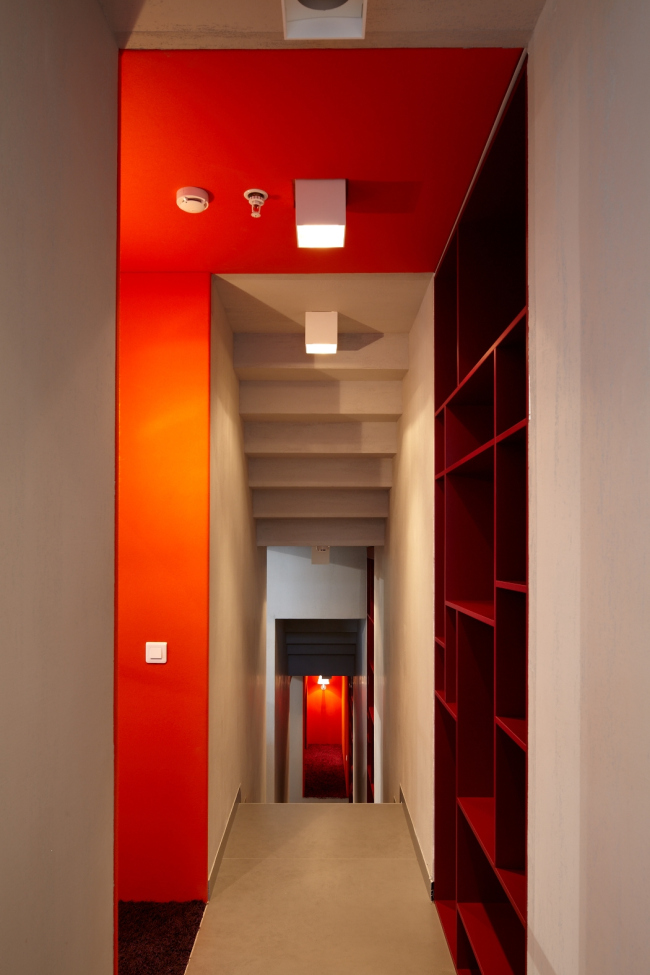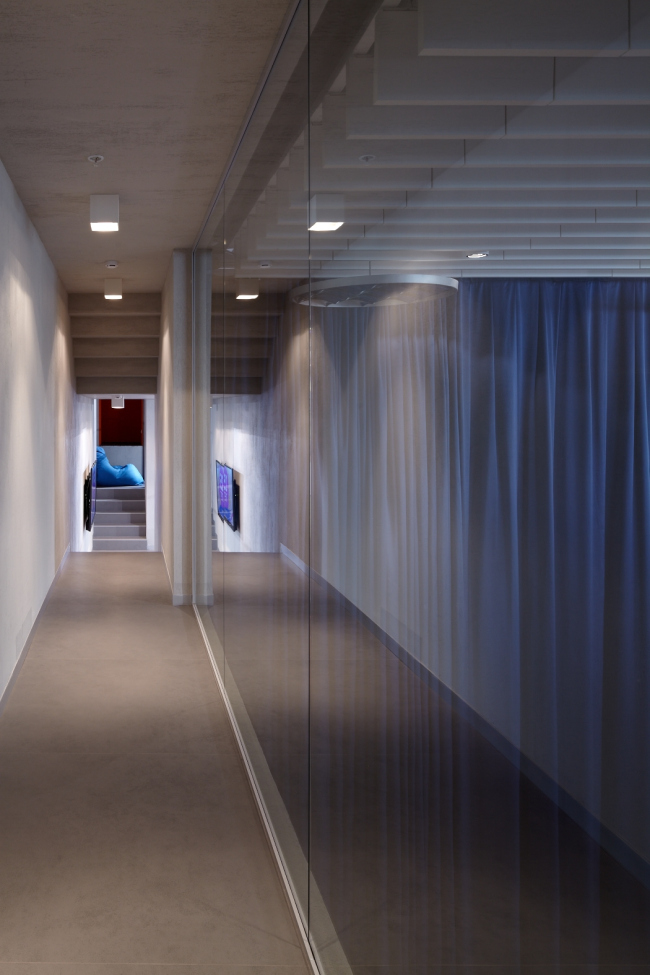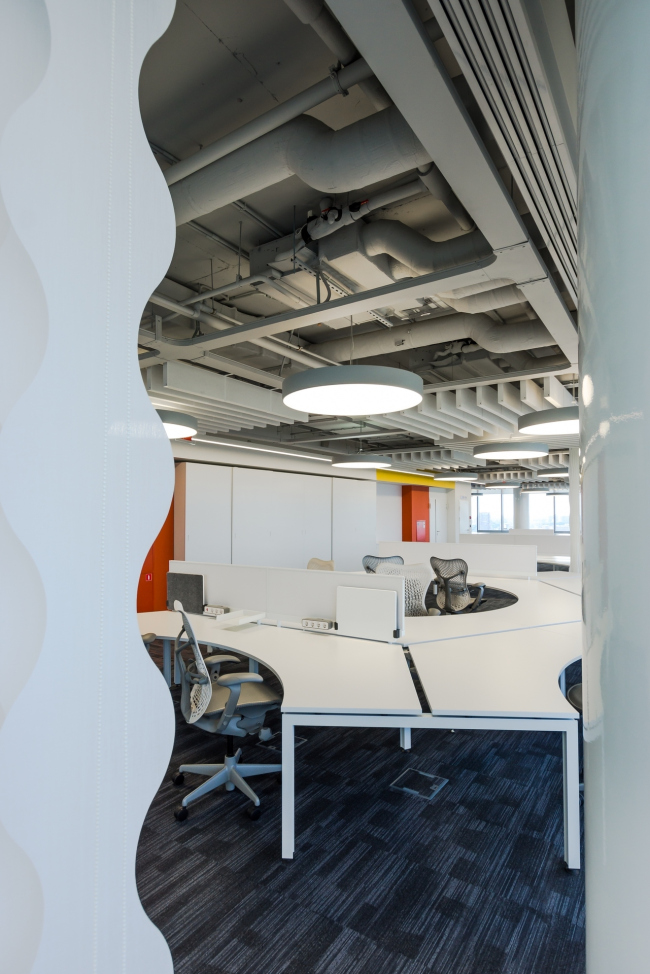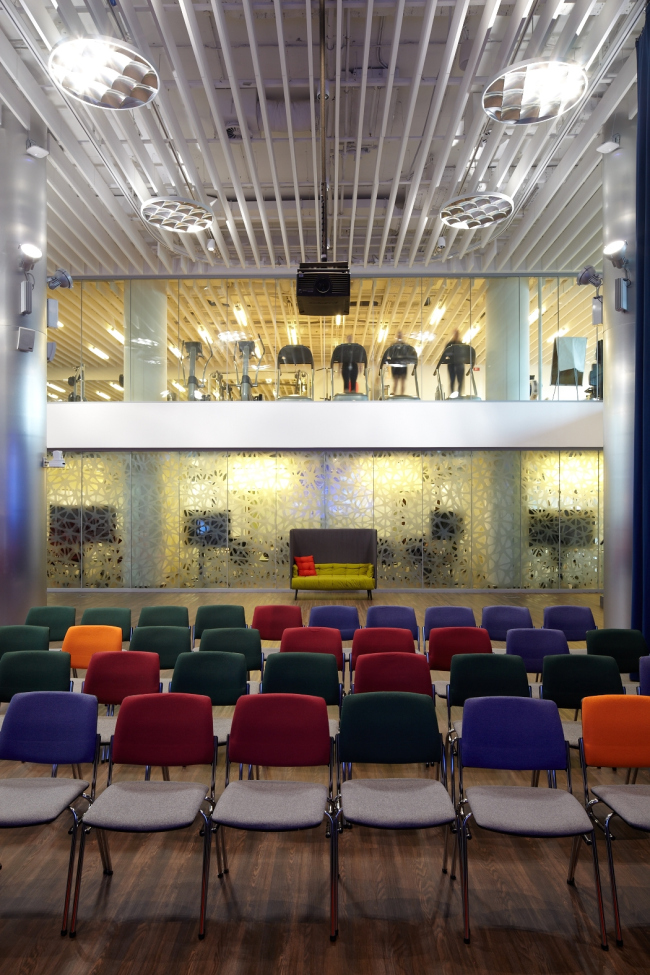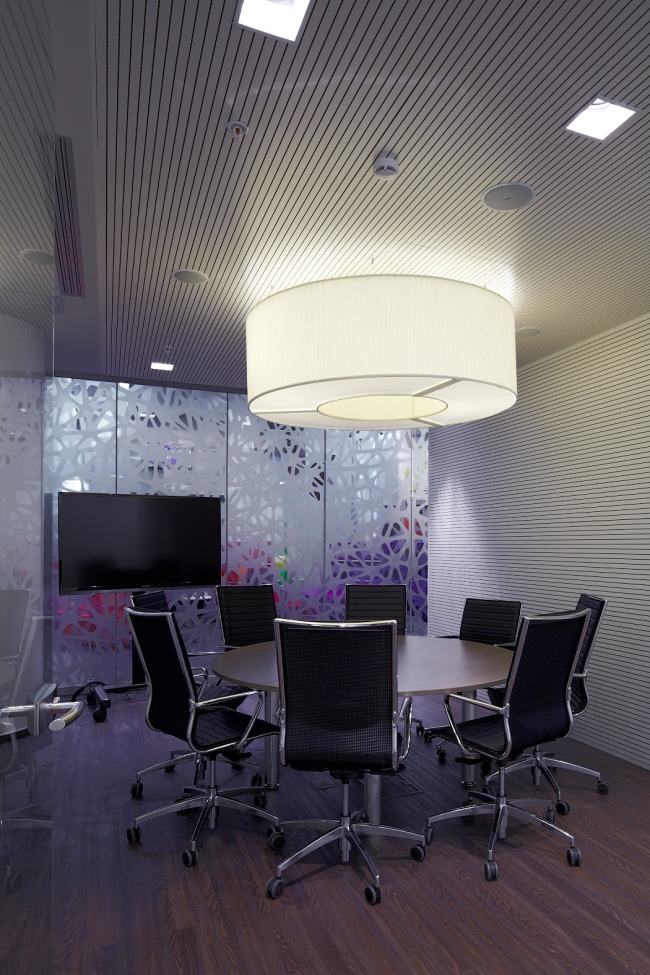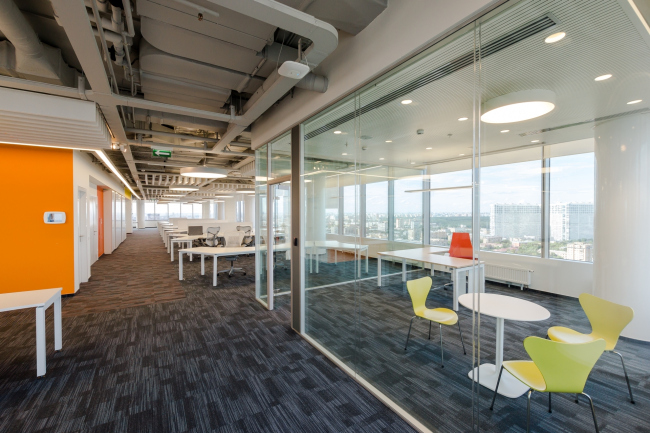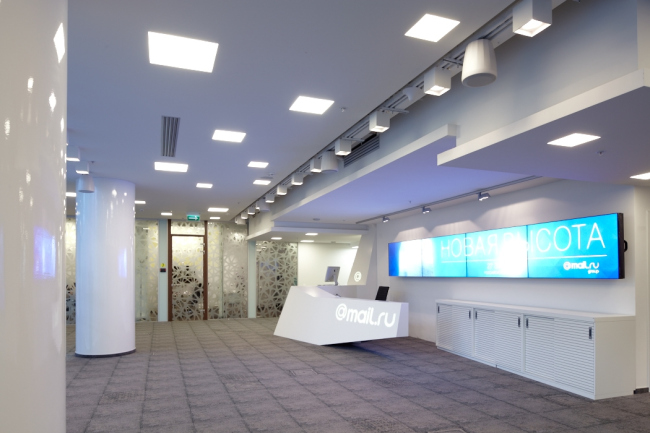|
Published on Archi.ru (https://archi.ru) |
|
| 11.11.2013 | |
|
Office with a View |
|
|
Alla Pavlikova |
|
| Architect: | |
| Nikolai Milovidov | |
| Studio: | |
| UNK | |
|
The new office of Mail.ru Group - created by UNK Project Mail.ru Group moved into the new 27-story building on the Leningrad
Avenue in late August but the office of one of the largest Internet companies
of the Russian segment of the web was given the finishing touch only recently. The total area of the new office amounts to some 28 thousand square meters. One of the towers of SkyLight business center on the Leningrad Avenue was chosen not only for the abundance of the useful space it provides, though - almost the top consideration in its favor was its location: the previous office of Mail.ru Group was situated practically in the neighboring building and the last thing the company wanted to do was lose some of its employees while moving into the new office solely because they would be daunted by the prospect of commuting into a different part of Moscow. The project of the new HQ was chosen through a tender that Mail.ru Group organized a couple of years back. As many as 19 companies took part, the winners of the best design concept being UNK Project. As Nikolai Milovidov, the chief architect of the project, reminisces, the accent was made on the upwardly mobile, free and functional space - and now that the construction is complete, one can safely say that most of the design and conceptual solutions proposed by UNK Project at the contest have been implemented to a letter. "Our customer put his basic requirement to the future office in this nutshell: the new HQ was to become an effective HR tool - Nikolai Milovidov explains - In other words, it had to be so attractive-looking and great to work in as to become, as much as the financial terms, an extra compelling factor to seek a job with Mail.ru Group. And, the way we see it, we succeeded in making it really attractive in all senses of the word!"
Among the main "socially attractive" functions of the new
office is the all-purpose gym (Russia's only indoor gym the size of a football
field) that, if necessary, easily transforms into a 585-seat congress hall, a
fitness center with an area of 600 square meters with premises for group
sessions, and a movie theater. The all-purpose hall, incidentally, was
initially designed as a suspension one: the existing volume was used for
sports, while, for organizing conferences, the sloping amphitheater was to get
lowered down to the center of the hall directly from the ceiling,
simultaneously forming a hall and a foyer. "This idea was thoroughly
thought out from the technical standpoint (we based ourselves on our experience
of designing theaters), and we had to give it up solely because of the absence
of the very notion of suspension public premises in the current construction
regulations" - explains Nikolai Milovidov. Versatility is generally one of
the strong points of this office. The gym and the movie theater easily
transform into conference halls, the meeting rooms - into offices and the other
way around, and any white vertical surface, be that a wall, a column, or a
locker door, can serve as a marker board that is just a few steps away from any
workplace or an armchair in the meeting room.
In this same place, next to the minor and the major atriums, there are
the meeting rooms and the recreation areas, as well as a restaurant and a fresh
bar. Nikolai Milovidov stresses that the project provided for the creation of
space that would be as much as possible "graded" in terms of
providing opportunities for individual and collective work. Suffice it to
mention the round sofas in the lounge area: on the inside, they all are about
active communication between people, while on the outside one can sit perfectly
undisturbed with a cup of coffee. In the building, the are lots of absolutely
secluded places where no one will find you and where you can work for a long
time one on one with your laptop.
What is important is the fact that all the public areas are made as open
as possible. Their walls are executed from glass, so each potential employee,
while going to his job interview, at his very first visit sees what Mail.ru
Group has to offer it employees apart from work per se: pumping iron, doing
yoga, have a glass of fresh juice or have a comfortable coffee break with their
colleagues. This same atrium is overlooked by one of the office floors, so the
future employee can also see his or her workplace. The principle of maximum transparency and openness is also something
that the layouts of the "working" floors are based upon. On the one
hand, this is done to facilitate as much as possible the communication between
the employees, on the other hand - for the sake of breathtaking views of
Back to the typical office floor, though! The working spaces are
scattered freely around the elevator chute - but, in order to give them a touch
of individuality and help the employees to easier find their way around, the
architects split each of the floors into two parts and mark them with either
blue or orange color - the corporate colors of Mail.ru. As for the furniture,
it was chosen of a neutral white color, at places "diluted" by
multicolored padded stools. The employees' desks are arranged in "chamomile"
or "star" patterns as the architects themselves call them. And, even
though such an unusual configuration of desks seems obviously more
space-consuming than the traditional squares or lines of desks, UNK Project
were still able to provide for the required number of workplaces at each of the
floors. The main benefit of the "chamomile" pattern, as Nikolai
Milovidov explains, consists in the fact that all the employees are seated at a
round in respect to one another, and to talk to a colleague or the whole
workgroup, it is enough to rotate your chair at 90 degrees.
The boundaries between the clusters are of a pretty conditional nature -
they are made in the form of geometrical "curtains" - and these are
suspended not everywhere but in the spots where the employees really need them.
Apart from that, each floor provides for individual demountable cubicles that
can serve as meeting rooms or studies for those who need to be left alone. The
cubicle's area is 12 square meters, and the dimensions of its elements strictly
correspond to the capacity of the building's cargo elevator, so, when taken
apart, this "room" can travel between the floors. For a typical
800-square-meter floor, UNK Project provided 4 standard draw-off points which
provide the opportunity to assemble the required extra meeting room practically
at any conceivable spot.
The architects proudly claim that Mail.ru Group HQ is, first of all,
Moscow's most athletic office (the overall area of its sports facilities
exceeds 1000 square meters), and second of all, the most thought-through office
in terms of space arrangement for various communication levels. Also, virtually
its every premise has a few using options - for work and for things outside of
work, while the numerous "twists", when put together, form the unique
image of the company in the future employees' eyes.
NoneNoneNoneNoneNoneNoneNoneNoneNoneNoneNone |
|
